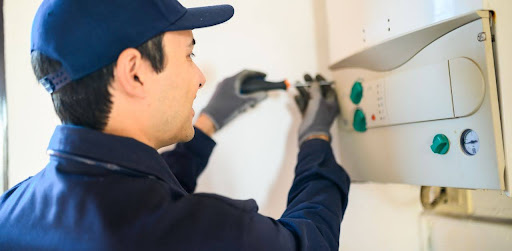
In the Middle East, where summers can be scorching and winters freezing, houses and businesses need efficient heating and cooling. Water heaters are versatile, providing warmth in winter and cooling in summer. This sets them apart from other possibilities. This article will examine how water heaters are changing Middle Eastern comfort and heating and cooling.
Water heaters now heat and chill in addition to providing hot water for domestic usage. Water heaters typically produced hot water for households. In the Middle East, where water heaters are ubiquitous in homes and businesses, using them for cooling is cost-effective and efficient.
Innovative Cooling Technologies:
Water heaters with cutting-edge cooling technologies like absorption chillers or heat pumps can absorb heat from indoor spaces and transfer it outdoors to chill the building’s air through heat exchange. These eco-friendly air conditioners systems use water as a refrigerant and reduce their environmental impact.
Using water heaters as cooling solutions in the Middle East offers major benefits, including energy efficiency and environmental responsibility. Water heaters can minimize energy use and carbon emissions compared to conventional air conditioning systems. This is done by using solar power or water heating waste heat.
The Middle East’s abundant sunlight makes solar water heaters an attractive option. Photovoltaic or solar thermal collector-equipped solar water heaters heat water using solar radiation. Unique heat exchange systems in these water heaters heat and cool space as well as provide hot water.
Ability to adapt to local conditions Middle Eastern water heaters are adaptable to various climates. Water heaters can be tailored to a desert’s dry heat or a coastal region’s humidity. This allows them to offer year-round heating and cooling.
Cost and long-term savings efficiency:
Middle Eastern individuals and businesses can save money by installing water heater for heating and cooling. Water heater systems’ efficiency, longevity, and lower energy and maintenance costs give users long-term economic benefits.
Frequently Asked Questions
What are water heaters’ heating and cooling functions?
Modern heat pumps and absorption chillers allow water heaters to perform two roles. These devices remove heat from indoors to cool in hot weather. They use waste heat or renewable energy to warm up during cooler months.
Why are water heaters useful for heating and cooling the Middle East?
Water heaters offer cost-effectiveness, sustainability, and energy efficiency. They leverage existing water heating infrastructure, require less energy than conventional air conditioning systems, and can be integrated with renewable energy sources like solar power.
Do water heaters save energy?
Water heaters with cooling capabilities save energy use and electricity expenditures by removing the need for air conditioning. Water heaters maximise energy efficiency and reduce environmental effect by capturing waste heat or solar electricity. This really benefits the environment.
Can Middle Eastern water heaters handle different climates?
Water heaters can handle most Middle Eastern climates. These include coastal high humidity and interior dry heat. They can be customized to solve environmental issues and provide reliable heating and cooling year-round.
Can solar electricity be used with water heaters?
Water warmers work with solar power. Solar water heaters use photovoltaic panels or solar thermal collectors to heat water. This is sustainable for space heating, cooling, and domestic hot water heating.
Conclusion
Since the Middle East is demanding more environmentally friendly and energy-efficient heating and cooling solutions, water heaters HVAC have evolved into flexible and inventive systems that can meet these changing needs. Water heaters improve comfort and sustainability in the region. Their versatility, energy efficiency, and local adaptability are crucial. Water heaters will be crucial to Middle Eastern heating and cooling for years to come. Technological advances and environmental awareness contribute to this.



